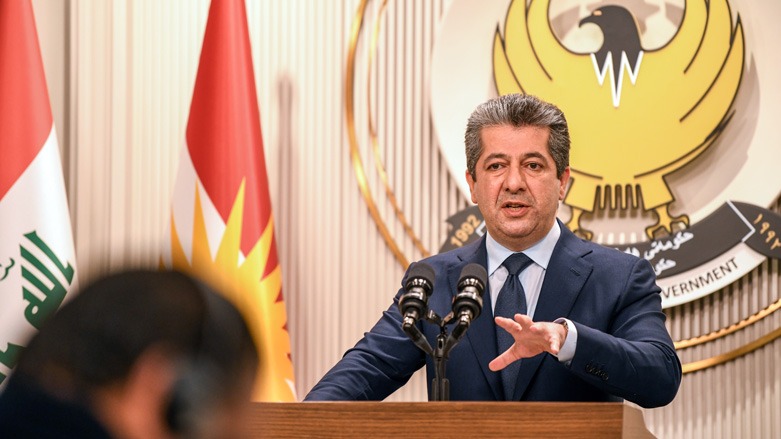March uprising proved the people of Kurdistan will never give up their national rights: PM Barzani

ERBIL (Kurdistan 24) – Kurdistan Region Prime Minister Masrour Barzani congratulated the people of Kurdistan on the anniversary of the "glorious Kurdish March uprising" on Saturday.
In his statement, Barzani congratulated "the whole of Kurdistan, and in particular the brave Peshmerga and the families of the proud martyrs, on the occasion of the anniversary of the glorious March uprising that erupted in 1991."
“We assure the resilient people of Kurdistan Region that we will defend our constitutional rights in every way possible and will make the Kurdistan Region an example of development, prosperity, and coexistence”.https://t.co/JMuX5Qv2Pc
— Kurdistan Regional Government (@Kurdistan) March 5, 2022
"This uprising constituted a historical turning point and a strong and influential message to the Kurdistan people, in rejecting oppression, occupation and oppression," he said. "It was the fruit of the cohesion and unification of all the people of Kurdistan with their various components, and great achievements were made in its shadow."
"It enabled the people of Kurdistan to win constitutional institutions, to move forward on their path towards a better tomorrow," he added.
The prime minister emphasized that the most important lesson of that 1991 uprising was "that the people of Kurdistan will never give up their national rights and demands and live a free and dignified life, and they sacrificed the most precious for this."
He stressed that the parties and people of the Kurdistan Region should use the same determination displayed during that uprising today in order to defend "the legitimate achievements and rights that were attained with the blood of thousands of martyrs."
"We assure the steadfast Kurdish people that we will continue to defend our constitutional rights by all means and that Kurdistan will remain a shining example of progress, prosperity, reconstruction and peaceful coexistence among all components," he concluded.
The Kurdish uprising began in March 1991 in the aftermath of the Persian Gulf War War. It also followed years of brutal oppression by the former Iraqi regime against the Kurdish people, including the barbaric Anfal campaign that left at least 180,000 Kurds dead.
Though largely spontaneous and locally organized at the start, Kurdish efforts against the Iraqi regime became more coordinated over time. Peshmerga units mobilized into various areas and forced the surrender of Iraqi forces at offices in cities and towns across the four Kurdish-majority provinces of Sulaimani, Erbil, Duhok, and Kirkuk.
